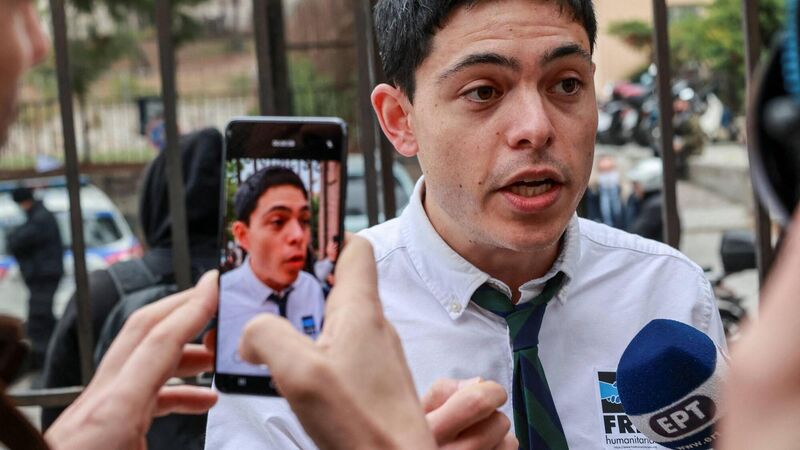Aid workers facing 25 years in prison for saving lives

Sean Binder has been left in 'legal limbo' in Greece on spying charges. Photo: Manolis Lagoutaris / AFP
Try from €1.50 / week
SUBSCRIBEON a cold night in February 2018, Sara Mardini and Seán Binder sat in a jeep on the rocky headlands of Lesbos, their eyes on the water.
As volunteers for Emergency Response Centre International (ERCI), a small humanitarian aid group, Mardini and Binder were looking for signs of incoming migrant boats so they could alert the Greek coast guard and search-and-rescue groups to dispatch assistance.
Already a subscriber? Sign in
You have reached your article limit.
Annual €130 €80
Best value
Monthly €12€6 / month
Introductory offers for new customers. Annual billed once for first year. Renews at €130. Monthly initial discount (first 3 months) billed monthly, then €12 a month. Ts&Cs apply.
CONNECT WITH US TODAY
Be the first to know the latest news and updates
Newsletter
Keep up with stories of the day with our lunchtime news wrap and important breaking news alerts.

Select your favourite newsletters and get the best of Irish Examiner delivered to your inbox
Tuesday, February 10, 2026 - 12:00 PM
Tuesday, February 10, 2026 - 9:00 PM
Tuesday, February 10, 2026 - 8:00 PM
© Examiner Echo Group Limited